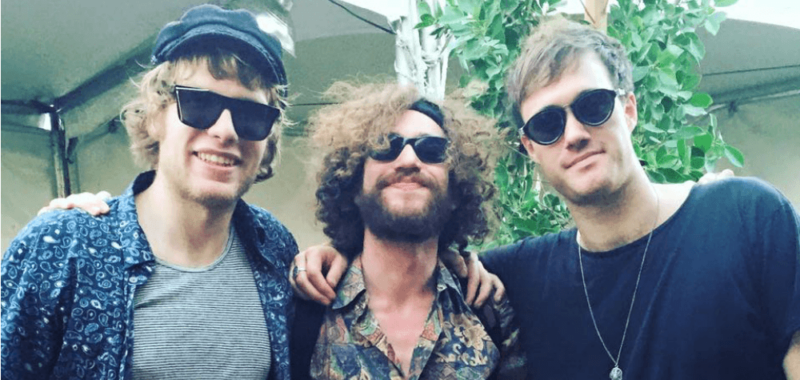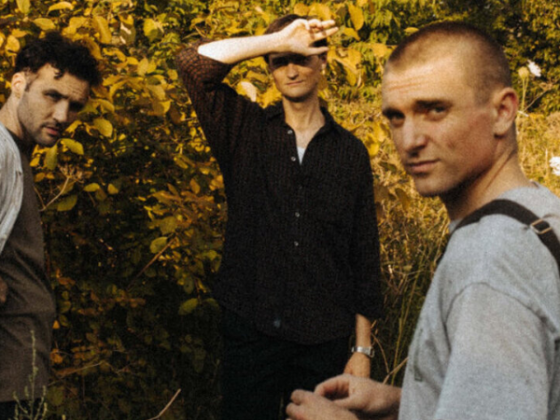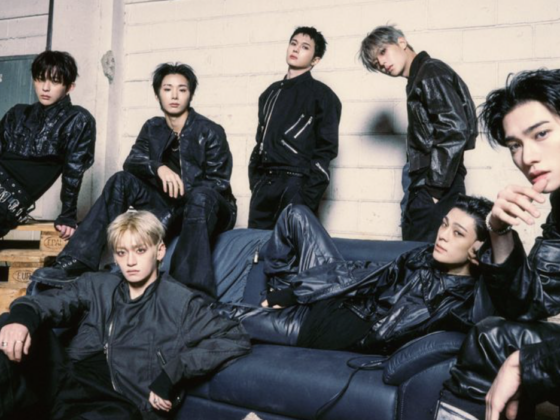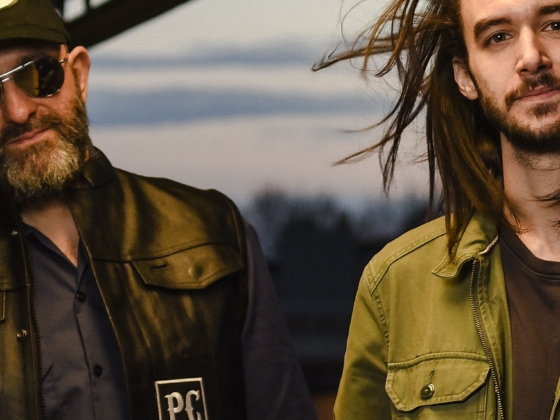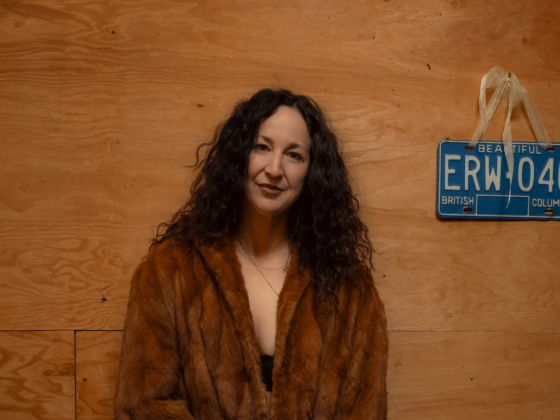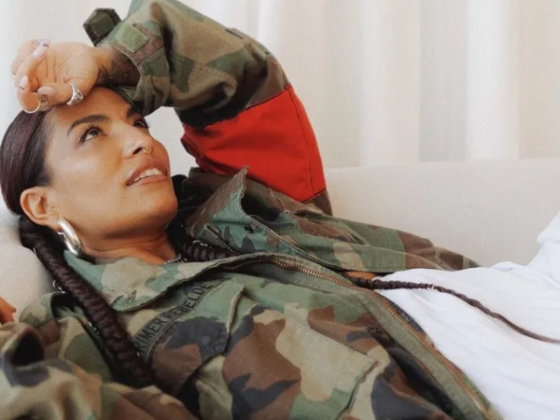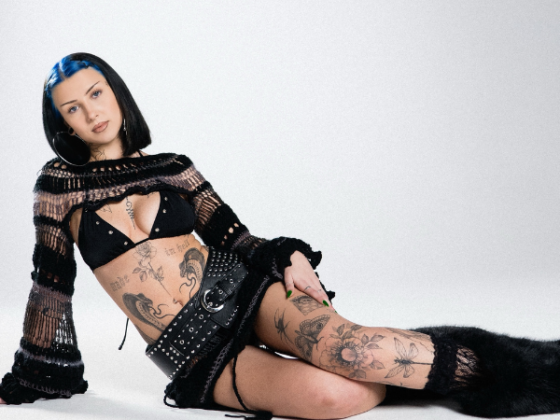Indio, CA – The 17th annual Coachella Music and Arts Festival drew over 130,00 fans to be witness to everything from an over-the-top Calvin Harris club set to hip-hop guest appearances from T.I. during Anderson Paak. Besides the various celebrities hidden throughout the VIP crowd, many musicians, who weren't necessarily performing, also came out in support of fellow artists, friends or to even check out some music of their own.
Bob Moses has unknowingly taken on the role of leading the charge for the introduction of underground electronic sounds to the rest of the world. The Canadian-bred, Brooklyn-based duo harmoniously blends underground dance beats, groovy basslines, and dark pop songwriting. Consisting of Tom Howie and Jimmy Vallance, the group made their Coachella debut this year at the Gobi tent, while also performing a special guest set to close out the legendary electronic Do LaB tent on the final night of the festival.
[soundcloud url="https://api.soundcloud.com/tracks/217490643" params="color=ff5500&auto_play=false&hide_related=false&show_comments=true&show_user=true&show_reposts=false" width="100%" height="166" iframe="true" /]
DirtyBird is a record label that has quickly become a powerhouse in the electronic industry and a staple name in the underground house and techno scene. Their golden boy DJ, Justin Jay, is on the forefront leading the future of house music and subsequantly carrying live electronic music to the next level.
[soundcloud url="https://api.soundcloud.com/tracks/257834453" params="color=ff5500&auto_play=false&hide_related=false&show_comments=true&show_user=true&show_reposts=false" width="100%" height="166" iframe="true" /]
Since both of these artists are pushing the boundaries of the electronic industry in their own right, EARMILK managed to arrange an in-person interview during Coachella this past weekend. Check out the exclusive interaction between Justin Jay and Bob Moses
Justin Jay: So I was out in the crowd during your guys set earlier today, it was awesome. I saw you brought in a live drummer?
Jimmy Vallance: Ya, that was a first for us and it just brought this fun rhythm and cool vibe.
JJ: What made you guys suddenly think of bringing in a drummer?
JV: We’ve been talking about it for a while now. We first started just DJing, then we had Tom begin singing over tracks, then we moved to only playing our own music and then Tom play his guitar and then we added in keys. Finally, we were like, ‘Let’s just get a band together.' Now we finally got around to doing it.
Tom Howie: Figured Coachella would be a good time for it.
JV: We were going to start touring for two weeks, so we figured we could just go in with a drummer and rehearse our asses off. We’d figure out how we were going to do it somehow. Eventually, we'll continue building out more of the live band. But we (Bob Moses) will always be just the two of us out front and everything that happens around us will just be additional stuff. Whatever will keep it fun for us and fun for people watching, we’re totally down for.
JJ: I’ve been into your music since you started putting stuff out on Scissor and Thread. What’s it like for you guys going from dance floor oriented tracks to full songs? What was that transition like?
JV: We always wanted to pair dance music with songwriting. We just didn’t know how to do it. It was something we had to learn how to do. Dance music is a thing that’s its own entity and sometimes vocals and traditional songs don’t work with it. Sometimes people just want to zone out and let the music be hypnotic. You’re not always looking for something to tell you a story, that can sometimes suck you out of that vibe. So we tried to find a way to still have that fluid experience of being hypnotic without breaking so hard between tracks. We didn’t want to play a track, stop, play a track, stop. Our focus was always to make sure it was about the transitions and how it flows together.
TH: Also, because we were in the warehouse scene in New York and we wanted to make songs that we could mix together with other performers and DJ at parties. We gradually figured out how to mix these different sounds together. Every song and genre has its own formula. We eventually figured out a formula that works to crunch in these vocal hooks and still also have a banging beat. We wanted it in a way that it wasn’t like ‘Oh, this a sampled vocal.’ I think because we both come from a songwriting background we thought about structure and building it up in sections.
TH: It started out because we would start building these vocal hooks over Francis Harris’ tracks. We would send him a vocal hook and he would send it back to us and ask us to make another one and another one and another one.
TH: Eventually, we would have two and we were like, oh this is like a chorus. So then we would do a verse and then we would do a chorus, and then another verse and suddenly we now needed to find a way to mix it all.
JV: Francis definitely pushed and inspired us. He would send us these things with notes on the beats and what we could to do to it. I remember the first time we did a Frank & Tony and Bob Moses collaboration on “Worked.” We were in our living room and Tom started singing this cool hook and then we just started riffing back and forth. It slowly became a lyrical and hook ping pong game and we honed in on the sound and then recorded it.
[youtube]https://www.youtube.com/watch?v=MlJHt8DLcmc[/youtube]
TH: We knew this was going to be either really good or really lame.
JJ: That’s what I feel like is cool of your understanding of proper underground house music. Sometimes there’s really no unnecessary vocals in proper house and techno vocals, if it’s amazing it’s in the tracks and if it’s not, then it’s out.
TH: It’s really about adding in the different elements, the subtleties and the attention to tiny details and sounds of the track.
JV: There’s been a couple of times where we made tracks that were just instrumentals and then we went back in to see what we could put in. Sometimes these little tweaks help take an originally chill sounding song and then brings it back up to kick you in the face a little more. That down and back up sound is the roots of where we come from.
JJ: In dance music, I’ve found that there are moments when artists have made a very generic house beat, sends it to a label and they get this top line spots. There always seem to be a lot of these manufactured puzzle pieces that just don’t quite fit together. Comparably, your sound is very cohesive. I'm’ curious, are you guys still listening to instrumental or underground house & techno music to get that more fluid/original beat?
JV: When we first started, we were mad into Nicolas Jaar and Valentin Stip. The thing about instrumental music is it’s pushing the boundaries of sonics. We’re more focused on writing a good song and then doing it justice with proper sonics. But these instrumental artists are just about making the fucking craziest sounding shit they can make. Like Aphex Twin, what the hell is that sound that just makes it so cool. For us, listening to that stuff is so inspiring. We love it all
TH: It’s funny in dance music because I think most producers aren’t singers and it creates this sort of separation of vocal and the rest of music, which I never really understood. When I first started playing guitar, my goal was just to be able to sing while playing it. There’s never really a disconnect between the vocals and the sound for me. It’s always a trip to see tracks create the vocal hook from the synth line, similar to that M83 track, “Midnight City.”
JJ: I get that and I feel like your tracks respect the true production of sound. Do you guys still keep in touch with Frank & Tony?
JV: Of course man, they have a residency at The Panther Room in New York and last week I went for their PUNCH DRUNK LOVE event. Those guys pushed us to do what we’re doing now and really sent us on our way. We just have so much respect for those guys and you need to pay it where it’s due.
JJ: I’ve spent the last four or five years myself really exploring instrumental, club house & techno sounds. I’ve found that learning about the full craft of songwriting and that's it’s now bringing a whole new dimension to scene. Just having people who are writing songs from a very pure place but also really respect house and techno music from the underground world we’re talking about is incredibly inspiring.
TH: Thanks man. it somehow becomes much simpler when you break it down like that. A lot of artists get into these worlds where all these various music scenes are very specific and it becomes intoxicating in their own way. It can become tough making sure you don't get lost in it.
JJ: And on the flip side, I think because it’s dance music it’s easy to feel the pressure of putting out these manufactured “Put your hands up in the air” cheesy party jams. For me, those tracks might even feel okay when you're partying with your friends on the dance floor but they don’t have that real craftsmen ship that’s derived from an honest songwriting perspective, invoking that real emotion.
JV: Yes. When we wrote “Tearing Me Up” we were like “Oh man, I don’t know about this.” I loved it and Tom loved it but we weren't sure if the track was going to fly. It was a weird sense feeling like your track may be too accessible and that scared us in a way.But you know what. We liked it so much that’s all that matters. There’s nothing wrong and there shouldn't be something wrong with liking your own track. It’s something you should never be afraid of. We liked it and we knew it didn’t come from a place of alternative intentions beyond just a song that came out of creativity. Sometimes, all you have to do is put those tracks out there and see what happens.
[youtube]https://www.youtube.com/watch?v=O8SBTUYtHaY[/youtube]
*edited for clarity

